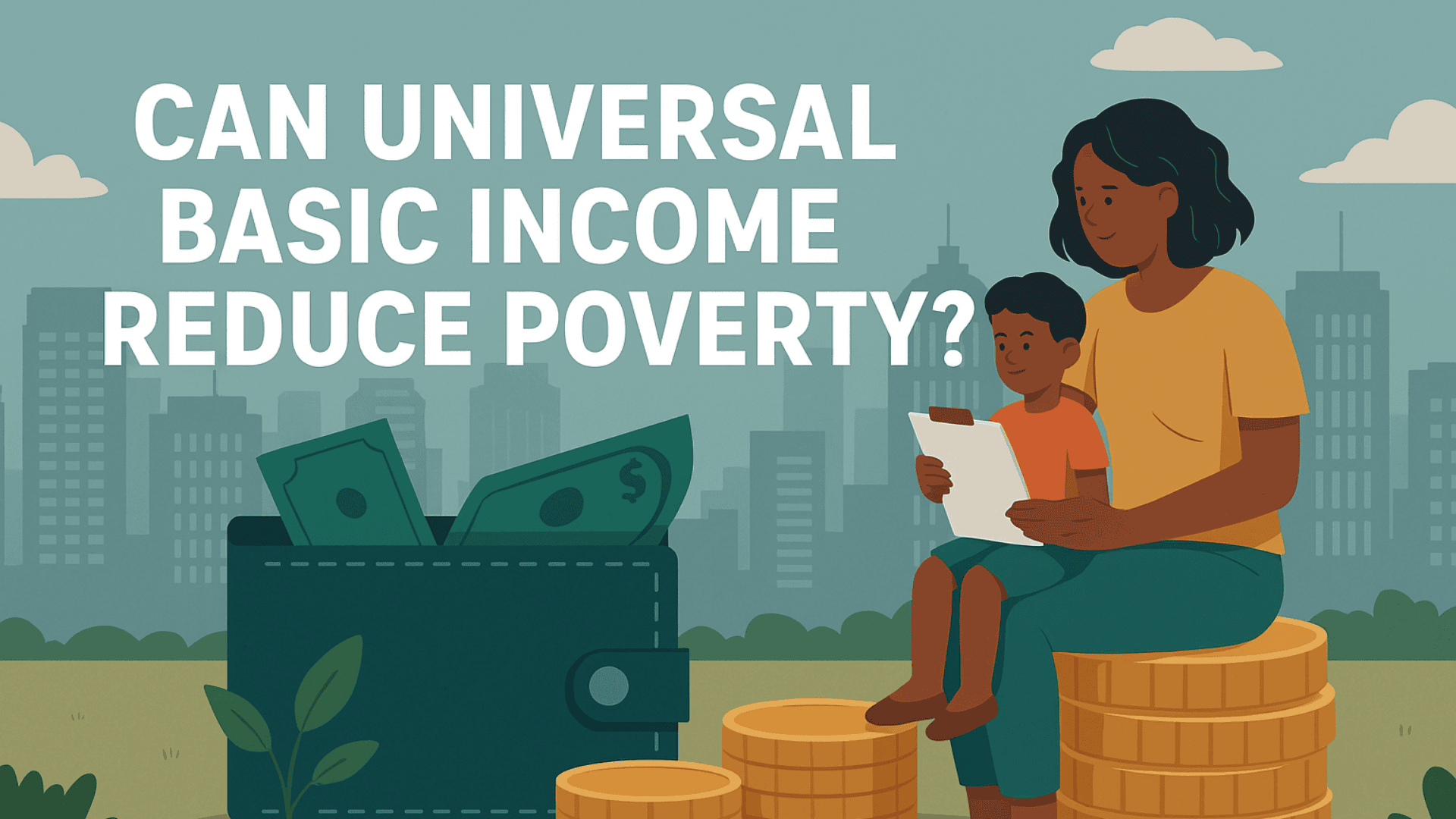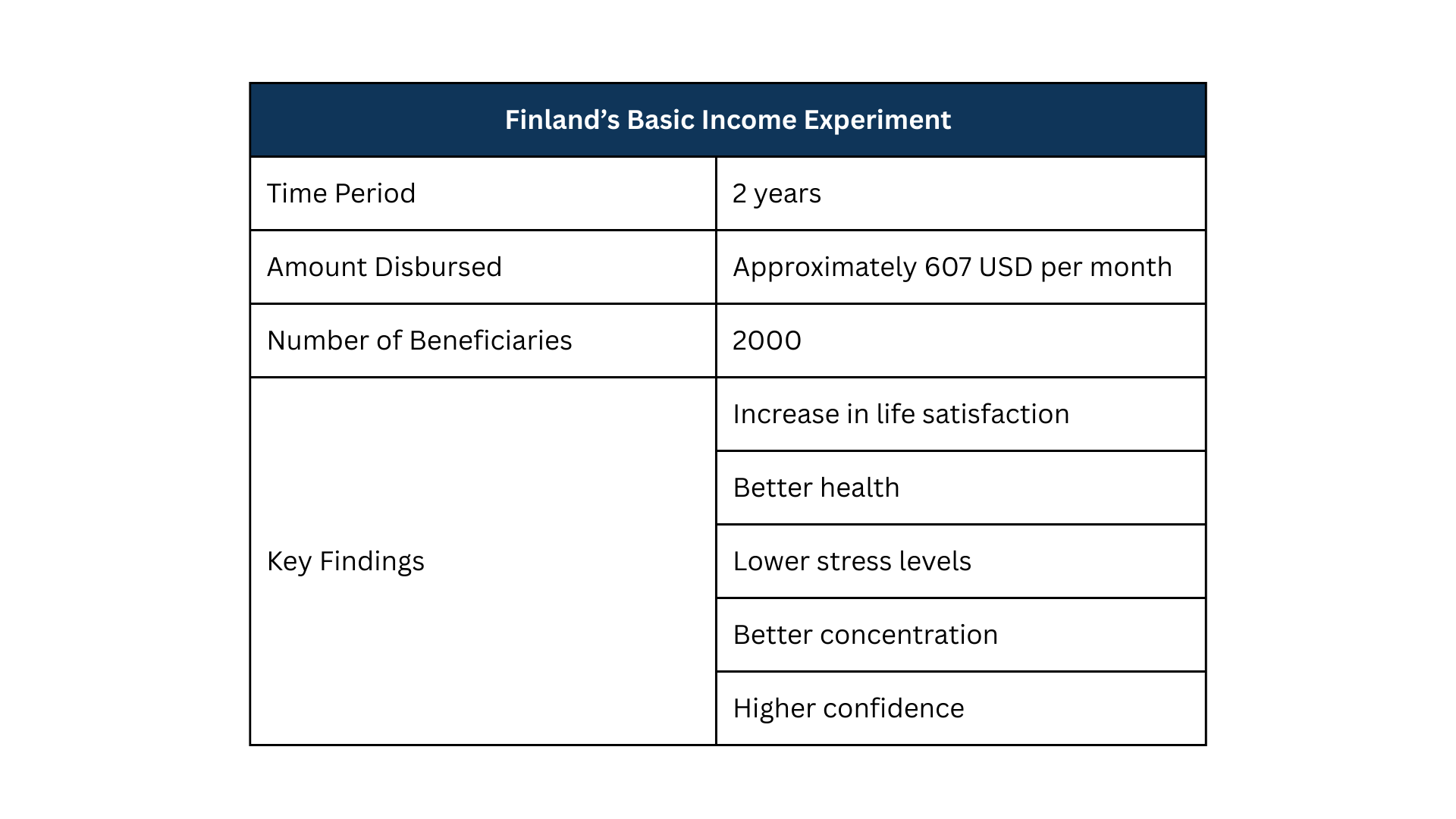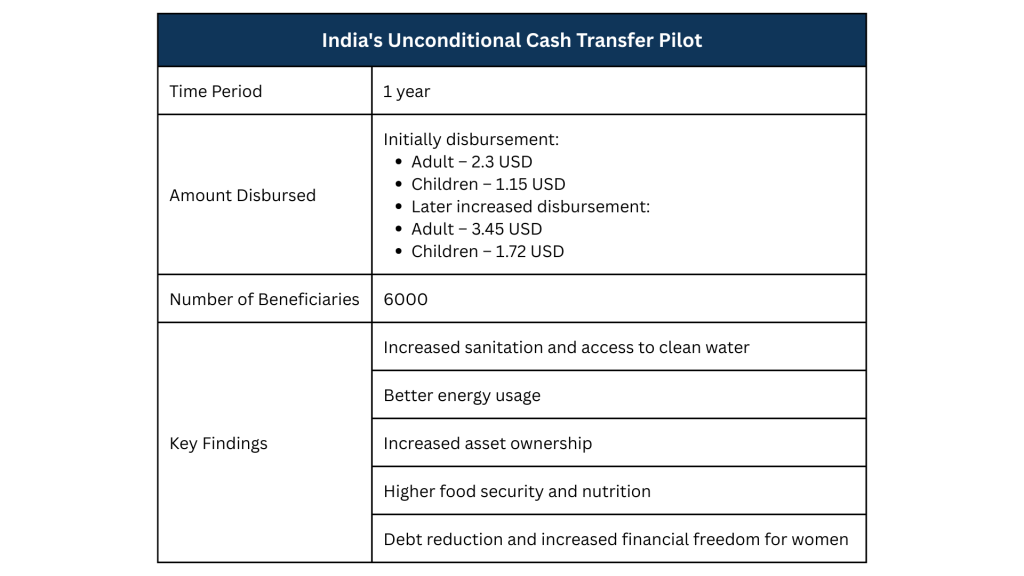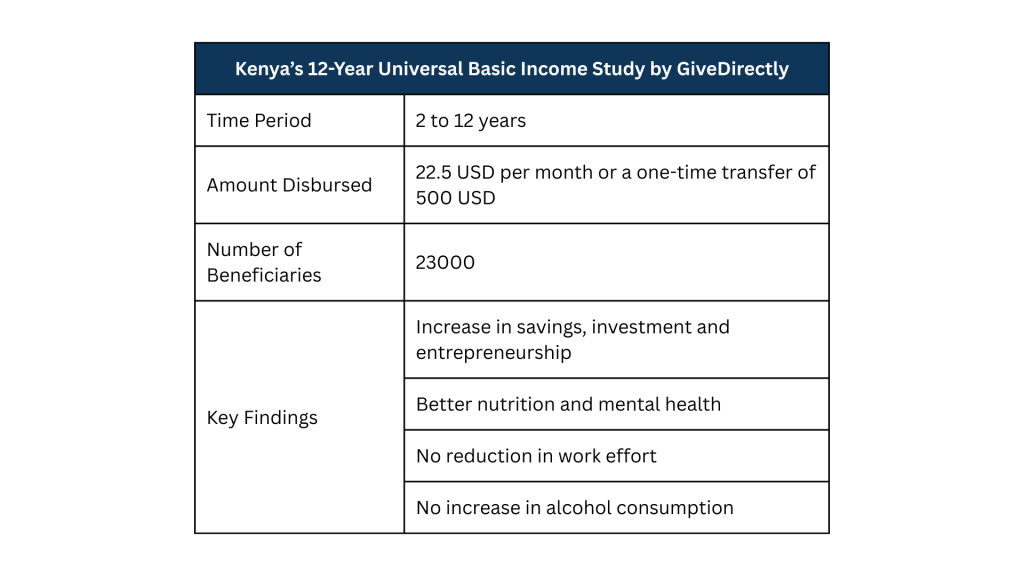
04 Apr Insights from Regional Pilots: Can Universal Basic Income Reduce Poverty?
Poverty remains one of the most pressing global challenges, affecting millions of individuals and hindering socio-economic development worldwide. As of 2024, 8.5% of the global population lives in extreme poverty, subsisting on less than $2.15 per day. This pervasive issue not only deprives individuals of basic necessities but also perpetuates cycles of inequality, limiting access to education, healthcare, and opportunities for economic advancement.
In response to this enduring problem, policymakers and researchers have explored innovative solutions, among which Universal Basic Income (UBI) has gained significant attention. UBI is a socio-economic policy that provides all citizens with a regular, unconditional sum of money, regardless of their income or employment status. The fundamental premise is to ensure a basic standard of living, thereby reducing poverty and enabling individuals to make choices that improve their quality of life.
Below are three key initiatives that highlight its potential impact:
Finland’s Basic Income Experiment (2017–2018)

Finland’s two-year basic income experiment provided €560 per month to 2,000 unemployed individuals aged 25–58 to assess its impact on employment and well-being. While employment rates showed no significant difference between the test and control groups, recipients reported higher life satisfaction (7.32 vs. 6.76), better health (54.8% vs. 46.2%), lower stress, and greater confidence in their future. These results underscore UBI’s potential to enhance well-being and financial security, even without immediate employment gains.
India’s Unconditional Cash Transfer Pilot (2011–2012)

A UBI pilot in Madhya Pradesh provided unconditional cash transfers to 6,000+ individuals, with adults receiving ₹200–300 and children ₹100–150 monthly. The pilot led to 16% improved sanitation (vs. 10% in control villages), better access to clean water, and increased adoption of efficient cooking and lighting sources. Asset ownership rose, especially among tribal families, improving mobility. Food security increased, with households reporting sufficient income for food rising from 52% to 78% in six months, and normal child weight-for-age improving from 39% to 58%. Debt reduction was notable, with 73% of recipient households reporting lower debt. Women gained greater financial control and decision-making power, underscoring UBI’s potential to improve living standards and promote financial stability, particularly in underserved communities.
Kenya’s 12-Year Universal Basic Income Study by GiveDirectly

Since 2017, GiveDirectly has conducted the world’s longest-running UBI study, distributing funds to 23,000 individuals across 195 villages in Kenya, offering $22.50 per month for 12 years or 2 years, or a one-time $500 transfer, with a control group receiving no payments. Early findings (2018–2020) showed that UBI empowered recipients without reducing work effort or increasing alcohol consumption. Long-term and lump-sum payments had the greatest impact, boosting savings, investments, and entrepreneurship, while short-term UBI mainly improved nutrition and mental well-being. These results highlight UBI’s potential to drive sustainable poverty reduction.
While UBI offers promising benefits, its implementation faces key challenges:
- Financial Sustainability: Funding a U.S. UBI of $1,000 per month could exceed $3 trillion annually, potentially requiring significant tax increases or cuts to welfare programs.
- Work Disincentive Risks: Although pilots like Kenya’s show no drop in work effort, large-scale UBI may reduce labor participation, especially in low-wage sectors.
- Inflationary Pressure: Increased cash flow could raise prices for essentials, diminishing UBI’s purchasing power, particularly in poorer regions.
- Equity Concerns: Uniform payments may disproportionately benefit wealthier individuals while neglecting the complex needs of the poorest.
- Administrative Complexity: Scaling UBI globally requires robust systems to prevent fraud and adapt to diverse economic conditions.
These challenges underscore that UBI’s success depends on careful design and context-specific implementation.
UBI as a Pathway to Economic Security and Social Progress:
The evidence from diverse UBI pilot programs indicates that unconditional cash transfers can lead to significant improvements in poverty reduction, economic activity, health, and education. While challenges such as funding mechanisms and potential labor market impacts persist, the observed outcomes highlight the importance of thorough planning, research, and strategic implementation to determine whether UBI could effectively contribute to global efforts to reduce poverty. Continued research and larger-scale implementations are essential to fully understand UBI’s long-term effects and to design policies that maximize its benefits for all members of society.
Blog by Sakthi Kumararaja,
Associate, Frost & Sullivan Institute
